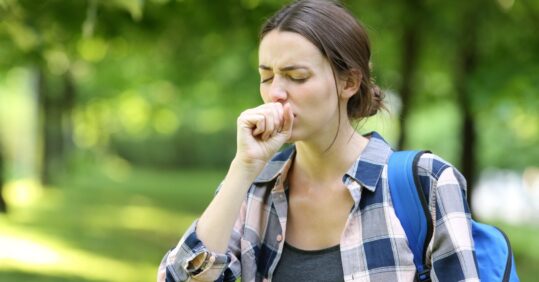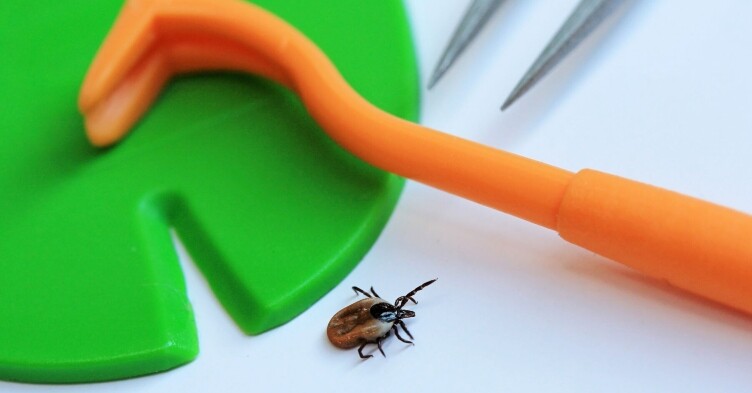NICE approves first immunotherapy tablet to treat tree pollen allergy

NICE has recommended a ‘first-in-class’ immunotherapy tablet for hay fever sufferers, offering long-term tolerance to allergens rather than just symptom relief.
Betula verrucosa, marketed as ITULAZAX® (12 SQ-Bet), is now recommended as treatment for moderate to severe allergic rhinitis or conjunctivitis caused by birch tree pollen.
It is estimated that around 27,000 people in England with moderate to severe tree pollen-induced hay fever could benefit from the drug, which targets the root cause of their allergy.
Guidelines state that, after an initial supervised dose, a dissolvable tablet is taken under the tongue once daily for a three-year treatment course.
Related Article: Consultation proposes widening physiotherapist prescribing powers
A phase 3 clinical trial demonstrated patients taking the drug had 33% fewer symptoms and 47% less medication use than those taking a placebo.
Common side effects include temporary local reactions such as itching or swelling in the mouth or throat, which are generally mild to moderate and usually subside within a few weeks or months with consistent use.
In its final draft guidance, NICE said there was ‘uncertainty in the economic model about how many healthcare appointments would be saved by using betula verrucosa’.
Integrated care boards, local authorities and NHS England now have 90 days from the publication of the recommendation to make betula verrucosa available as treatment.
‘But even when taking this into account, the likely cost-effectiveness estimates are all within the range that NICE considers an acceptable use of NHS resources’, it said.
In a press release issued by ALK-Abelló, the Danish pharmaceutical company predicted ‘significant cost savings’ for GPs by creating a treatment option for moderate to severe hay fever sufferers.
It said: ‘Severe tree pollen allergies place a considerable burden on the NHS, as the pollen season drives more people to visit their GP and specialist care.
‘This NICE recommendation provides an at-home treatment option that is highly cost-effective, providing significant cost savings to the NHS compared to the standard of care.’
Related Article: South of England hotspot for Lyme disease infection
Amena Warner, head of clinical services at Allergy UK, said: ‘Many people don’t realise how awful it is having an itchy, runny nose, sneezing episodes or itchy, irritated eyes in the pollen season.
‘We frequently hear from people who avoid time outdoors, keep doors and windows shut, check pollen counts and try and minimise any exposure, which takes a significant toll on their physical and emotional well-being.’
She said the recommendation ‘provides a genuine opportunity for people to manage the root cause of their pollen allergy’.
Dr Robin Gore, president of the British Society for Allergy and Clinical Immunology (BSACI), said the hay fever treatment ‘marks a shift from simply managing symptoms to long-term disease modification’ with treatment that ‘targets the underlying cause of the allergy’.
Related Article: NICE recommends better support for weight-loss patients after treatment
Earlier this year, the Medicines and Healthcare Products Regulatory Agency (MHRA) encouraged medicines manufacturers to reclassify their products from prescription-only to pharmacy medicines, including medicines for rhinitis.
In January, NICE approved the drug Acarizax to treat severe dust mite allergy which was thought to benefit around 13,000 people suffering from persistent moderate to severe allergic rhinitis.
This article was first published by our sister title Pulse

See how our symptom tool can help you make better sense of patient presentations
Click here to search a symptom





![Menopause: identification and management [NG23]](https://s3-eu-west-2.amazonaws.com/images.nursinginpractice.com/wp-media-folder-nursing-in-practice/wp-content/uploads/2025/03/PULSE-NIP-UPLOAD-BAYER-NICE-MENOPAUSE-A5-HANDBOOK.jpg)
